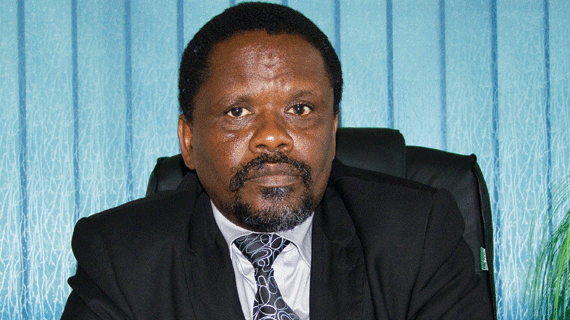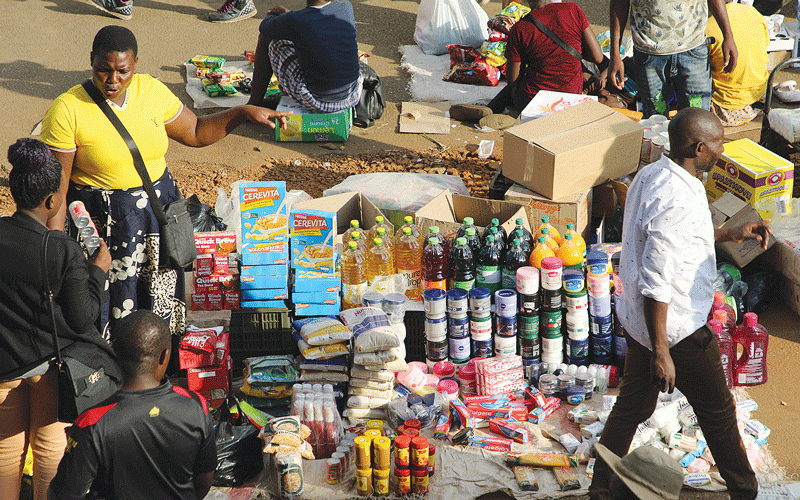
LILWELANI lingamunyanga bele linye, (why are you fighting as if you shared the same mother’s breast?)
Culturally or traditionally, siblings are known to fight each other, especially during the formative years of their growth.
At times this hostility, if not checked can progress into adulthood. Experiences are awash of siblings who don’t see eye to eye, especially when it comes to sharing heritage.
The implication deduced from this old saying is that siblings have something in common to contend for.
The analogy is further extended to allege that a witch or wizard cannot cast a bad spell on an individual whom he does not personally know, for example knowing one’s clan totem, beliefs and value systems.
It was at the recently finished camp meeting of a certain church, that the author of this article overheard an old woman remark: “Lilwelani lina lingatshiyelananga ibele?” By the looks of it, the child of this old woman’s daughter-in-law was harassing another child whom it is presumed was the old woman’s daughter’s child.
The saying is loaded with meaning. Firstly it disapproved of the daughter-in-law’s child’s behaviour of subduing other children.
Secondly, it points to the fact that the two children had nothing in common to fight over.
- Chamisa under fire over US$120K donation
- Mavhunga puts DeMbare into Chibuku quarterfinals
- Pension funds bet on Cabora Bassa oilfields
- Councils defy govt fire tender directive
Keep Reading
Overtly, this was an indirect rebuke on the daughter-in-law for not reining in her child. This assumption is further buttressed when the same old woman was again overheard saying: “They say I should also assist in the daily duties as opposed to eating their food for nothing.”
God in his wisdom delimited continents by seas and oceans. Later on powerful nations carved out country boundaries using rivers or other land marks.
In turn, countries divided themselves in provinces or regions. These demarcations were not meant to perpetually paddock continents, countries or provinces, but were simply made to establish identities and geographical territories for various nations and tribes of this planet.
Human greed led to the scramble for Africa, invasion of regions and provinces. There is nothing wrong with nations, races and tribes cohabiting, but there is everything wrong when a visitor claims domicile in other people’s continent, country or region.
Such disrespect for other people’s rights has led to the inclusion of the principle of devolution of power in Zimbabwe’s new Constitution. On the extreme, some people are now calling for secession.
One may ask for reasons that have necessitated calls for devolving power or total secession. The answer is to be found in tilted distribution of wealth. The national cake is not proportionally shared.
Two cardinal principles were observed up until independence in 1980. Salisbury now Harare was the political and administration capital, while Bulawayo was the industrial capital and this arrangement saved the country very well.
In addition, this acted as a fitting balancing act. In addition, the southern region is a ranching zone. Surprisingly and quietly the Cold Storage Commission (CSC) has been moved to Chinhoyi, what economies of scales does one expect to reap from producing away from the source of raw materials?.
A studied plan is in operation to evacuate livestock from the southern to the northern regions, so as to justify the translocation of CSC to Chinhoyi.
Already there is a periodic and annual livestock sale at Mt Hampden which is evidence of the existence of the said plan.
“Why fight when you are not siblings?” Economists advocate for specialisation, sticking onto what one can do best. Alternatively, one can be a jack of all trades, yet a master of non – ubambazonke (grab it all).
As a result, Harare is suffocating from human and vehicular traffic, resulting from neglecting other towns, thereby allowing them to die economically. Naturally, people will flock to where pastures are green.
Efforts to make Harare ubambazonke (grab it all) is beginning to bear fruits in the form of a traffic jungle and moral decadence.
Recently, the media carried a story that Bulawayo City Council’s application to acquire more land to expand the city had been turned down. Who turned down the request and for what reason?
Possibilities for turning down the request could be to keep Bulawayo’s population low for constituency delimitation purposes and to continue adding peri-urban dwellers to rural voters.
There is a myriad of dismembering and disablements on the southern region.
Based on the aforesaid issues, would one continue to blame secessionists? The day of reckoning is fast approaching.
Why fight when you did not share the same mother’s breast?
Moses Tsimukeni Mahlangu is the general-secretary for Zimbabwe Urban Councils Workers’ Union. He is a labour consultant and arbitrator.
Feedback: E-mail: [email protected]










